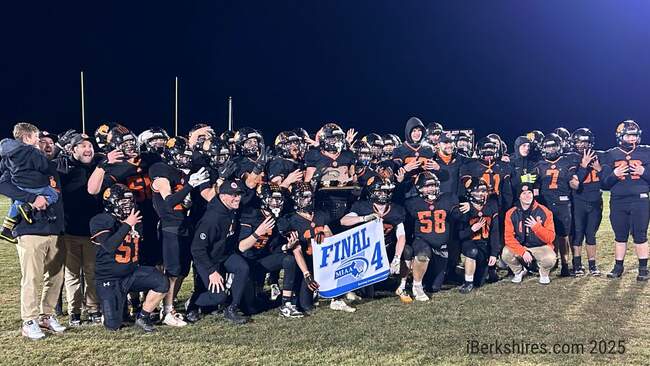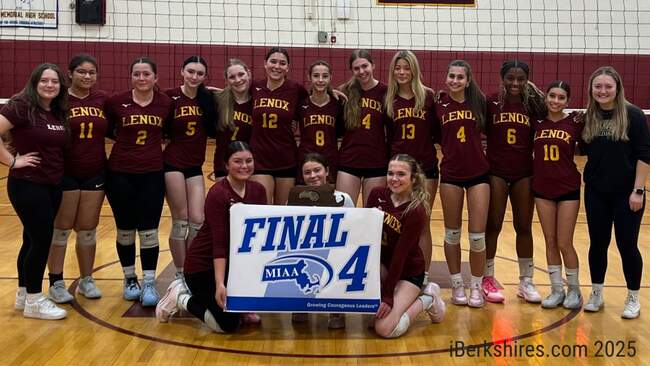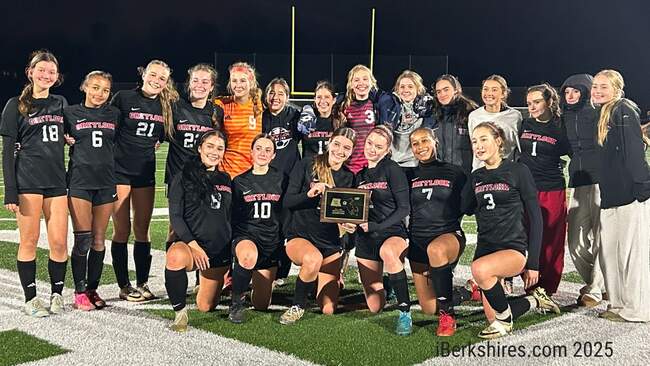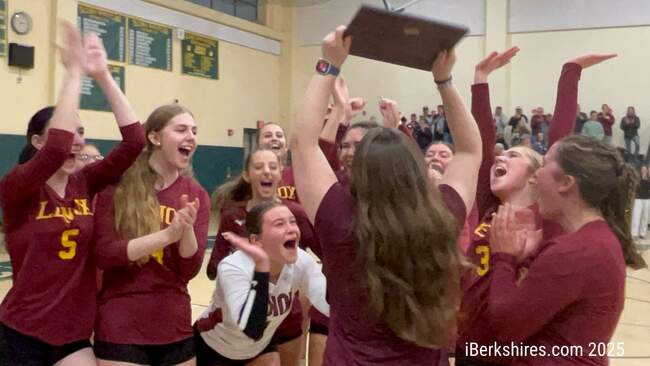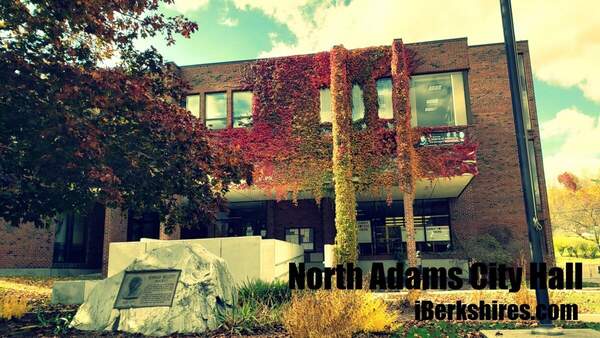
Developers Tour Highlights Region's Assets
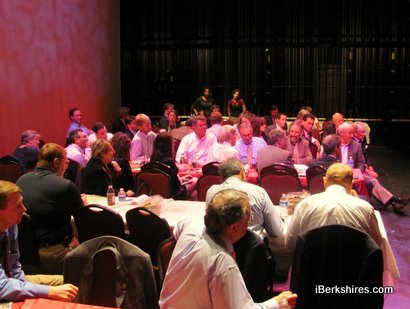 More than 30 real estate professionals and local officials attended a luncheon on Tuesday at the Colonial Theatre to discuss the region's potential. |
"We kind of think of ourselves as not being able to compete. I think what we heard today is we can compete for small and midsized opportunities. We don't have to go after the big hit," said David Rooney, president of the Berkshire Economic Development Corp. "The other thing that was important to me is how they reinforced the value of the quality of life attributes that we have for individuals or entrepreneurs for making their living decisions and their business decisions."
The panel, held at a luncheon Tuesday at the Colonial Theatre, was the culmination of a bus tour organized by the BEDC with MassDevelopment to bring more than two dozen developers and real estate professionals to the area for a tour of potential development sites.
That included the vacant three-story KB Toys buiding on West Street. The tour-goers wandered through the maze of empty cubicles in the former headquarters of the toy distribution company after buzzing by the old Eagle, Greylock and Niagara paper mills during a bus tour of South County sites. The group had also looked over the William Stanley Business Park.
MassDevelopment began setting up development presentations at so-called "Gateway Cities" two years ago, said Nancy Howard, the agency's chief operating officer, about the time the financial system collapsed. It wasn't an auspicious start, but the state agency is convinced that getting developers into the former mill cities and transport hubs will spark more growth.
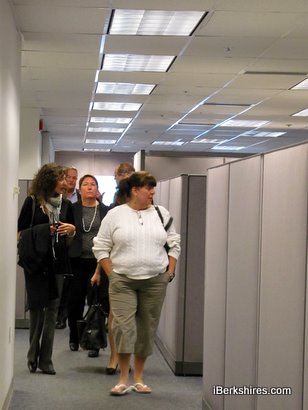 The only stop on the tour was the empty KB building in Pittsfield. |
The Berkshires trip was the second that MassDevelopment coordinated that offered the presentation on the bus; it was easier, said Howard, than doing it at the end of the two-hour trip.
The bus left Boston shortly after 7 a.m. with Rooney and Mayor James Ruberto onboard. Not surprisingly, Ruberto gave the bus riders the hard sell on the city. "I had a captive audience for two hours," said Pittsfield No. 1 booster. "What would you do for two hours — you sell ad nauseum."
After listening to the panel of Maury Wolfe, a partner in the Boston architectural firm of DiMarinisi and Wolfe; Walter "Budge" Upton, director of construction at the Boston Museum of Fine Arts; Fred Kramer, president of Boston design firm Add Inc.; and Eden Milroy, president of development and property management firm Pilot Development, the hard sell may not have been too hard.
"I was pretty impressed this morning," said Milroy. "I haven't been to Pittsfield in 10 years ... I heard the sales pitch but what I found was pretty impressive."
The four said the region was well situated to take advantage of growth areas in New York, Boston and Connecticut; that its transporation infrastructure was good (but could be better) and that it has a strong regional banking system.
Milroy pointed to school improvements as critical to growth. "I can't stress what an important key that is not simply for housing but for the future of the city," he said. "In any city today that's a real difficulty and what I can say is never, never give up."
.jpg) Back on the bus. |
Flexible permitting and zoning can be a major factor in getting any project off the ground, said Kramer, who described the process in Boston as "mudwrestling with one coming up the winner."
Affordable housing, broadband, better highway and rail access and schools were all areas for improvement; medical, biotech, health, pharmaceuticals and technology suggested as suitable growth businesses for the region. The area's quality of life — its museums, forests, theaters, museums and open space — were cited as among its best assets.
"I think that's something Pittsfield can take advantage of," said Eden. "It's a desireable place to be."

